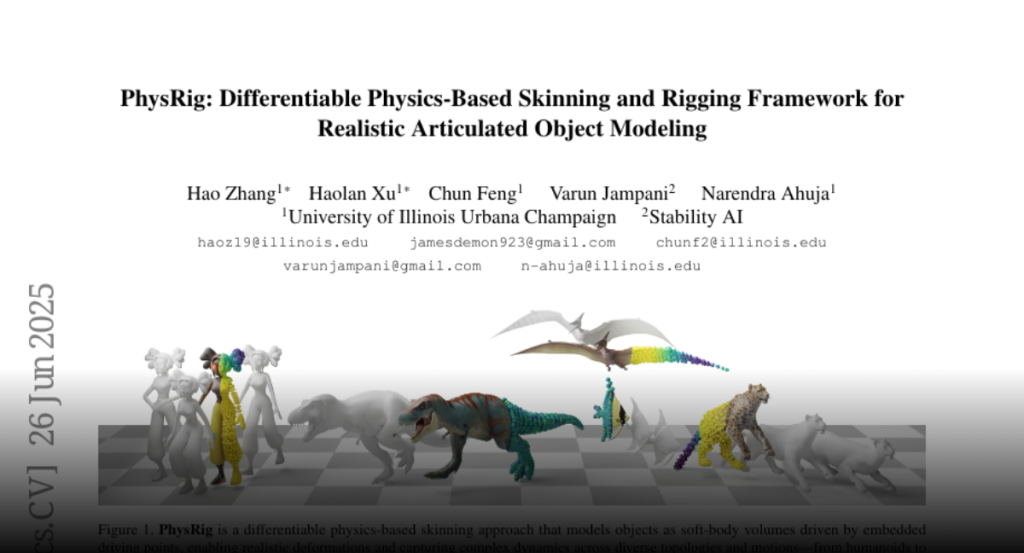A physics-based skinning and rigging framework called PhysRig uses volumetric representation and continuum mechanics for more realistic and physically plausible animations.
Skinning and rigging are fundamental components in animation, articulated
object reconstruction, motion transfer, and 4D generation. Existing approaches
predominantly rely on Linear Blend Skinning (LBS), due to its simplicity and
differentiability. However, LBS introduces artifacts such as volume loss and
unnatural deformations, and it fails to model elastic materials like soft
tissues, fur, and flexible appendages (e.g., elephant trunks, ears, and fatty
tissues). In this work, we propose PhysRig: a differentiable physics-based
skinning and rigging framework that overcomes these limitations by embedding
the rigid skeleton into a volumetric representation (e.g., a tetrahedral mesh),
which is simulated as a deformable soft-body structure driven by the animated
skeleton. Our method leverages continuum mechanics and discretizes the object
as particles embedded in an Eulerian background grid to ensure
differentiability with respect to both material properties and skeletal motion.
Additionally, we introduce material prototypes, significantly reducing the
learning space while maintaining high expressiveness. To evaluate our
framework, we construct a comprehensive synthetic dataset using meshes from
Objaverse, The Amazing Animals Zoo, and MixaMo, covering diverse object
categories and motion patterns. Our method consistently outperforms traditional
LBS-based approaches, generating more realistic and physically plausible
results. Furthermore, we demonstrate the applicability of our framework in the
pose transfer task highlighting its versatility for articulated object
modeling.

